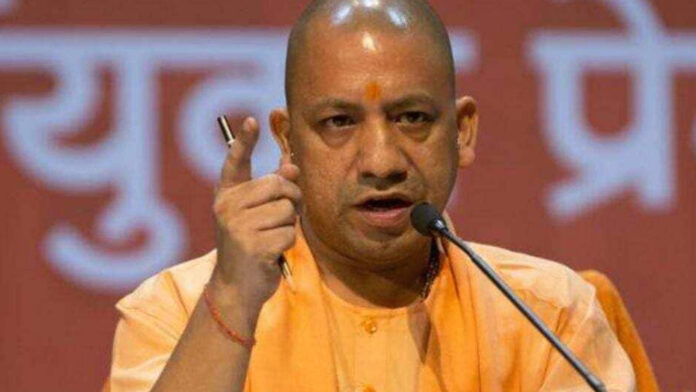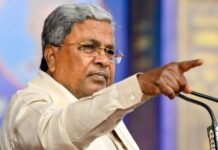
New Delhi: As India embarks on its transformative journey through the Amrit Kaal, with the goal of becoming a developed nation by 2047, Prime Minister Narendra Modi’s vision of the Panch Pran is being brought to life on the ground by Chief Minister Yogi Adityanath. Under his leadership, Uttar Pradesh has taken the lead in effectively implementing Central government schemes and honoring national icons—evident in the renaming of ten state-level programs after previously overlooked heroes.
In contrast, during the tenure of previous SP and BSP administrations, the legacies of eminent national figures were often reduced to mere tokenism. These leaders were remembered primarily through public holidays rather than meaningful engagement with their contributions. Vote bank politics took precedence over genuine recognition, and historical personalities were selectively chosen based on caste considerations, with their significance narrowed to community identities. Their invaluable contributions were often overshadowed by political motives, leaving students and government employees largely unaware of their true impact on the nation.
This trend led to an alarming situation where government school students received nearly 250 holidays annually, factoring in extended summer and winter breaks, while government employees availed approximately 190 days off each year. This excessive number of holidays significantly hampered both educational outcomes and administrative efficiency, creating learning gaps among children and causing delays and backlogs in official work.
Declaring holidays in the names of great personalities—who ought to have inspired national pride—had become a tool of political appeasement. Breaking away from this practice, the Yogi Adityanath government has introduced impactful programs in schools and offices that focus on educating people about the lives and legacies of these luminaries, aiming to foster genuine inspiration among students and civil servants.
As part of this transformative mission, the canteen and rest house facilities at every agricultural market in Uttar Pradesh have been renamed after Mata Shabari, symbolizing devotion, simplicity, and the heritage of the Bhil community. Similarly, in tribute to Punyashloka Ahilyabai Holkar—renowned for her efforts in temple restoration and leadership—the government is establishing working women’s hostels across seven districts, promoting safe and dignified living spaces for women contributing to today’s workforce.
In a culturally significant step to revitalize local industries, the Yogi administration has renamed textile and leather parks after iconic Bhakti-era saints. Ten textile parks, part of the CM Mitra Park Yojana, now bear the name of Sant Kabirdas, the revered Julaha saint and Nirgun Bhakti poet. This move celebrates the dignity of labor while fostering economic empowerment and preserving cultural wisdom for future generations.
In the same spirit, two leather parks in Uttar Pradesh have been named after Sant Shiromani Ravidas ji Maharaj, another towering figure of the Bhakti movement. This initiative illustrates the Yogi government’s holistic approach of integrating cultural identity with economic progress. Unlike past regimes that deepened caste and religious divisions in the guise of honoring icons, the current government is promoting entrepreneurship while preserving India’s spiritual and cultural roots.
The Yogi government has also woven the legacies of four Bharat Ratna awardees into Uttar Pradesh’s developmental narrative, thereby reinforcing the state’s role as the growth engine of a new, progressive India. A Seed Park in Lucknow has been dedicated to Chaudhary Charan Singh, a steadfast advocate for farmers’ rights. Urban libraries across the state now carry the name of former Prime Minister Atal Bihari Vajpayee, revered for his visionary leadership. Hostel renovations are being carried out under a scheme named after Dr. B.R. Ambedkar, the principal architect of the Indian Constitution. Furthermore, employment zones in every district now honor Sardar Vallabhbhai Patel, symbolizing unity and national integration.
Additionally, the Yogi government has launched a dynamic initiative aimed at empowering promising young women across the state by naming a scheme after Rani Lakshmibai of Jhansi, a symbol of courage and patriotism. Under this scheme, deserving girl students pursuing higher education will receive scooties, enhancing their access to educational institutions and strengthening their independence and self-reliance.
Moreover, to honor tribal heritage and celebrate the legacy of the valiant tribal freedom fighter Dharti Aaba Bhagwan Birsa Munda, the government plans to set up tribal museums in Mirzapur and Sonbhadra districts. These institutions will play a vital role in preserving, documenting, and promoting the rich cultural and historical traditions of Uttar Pradesh’s tribal communities.







